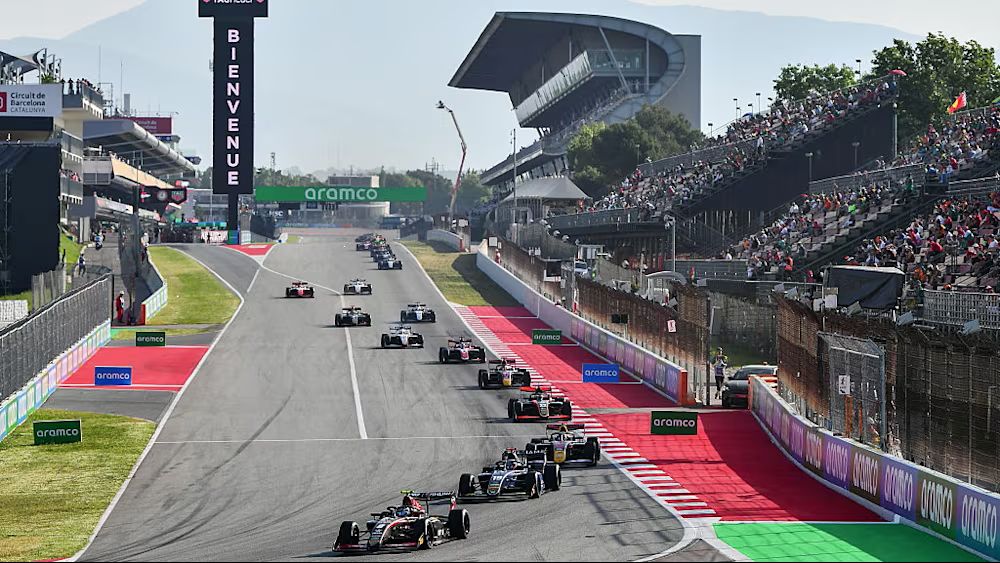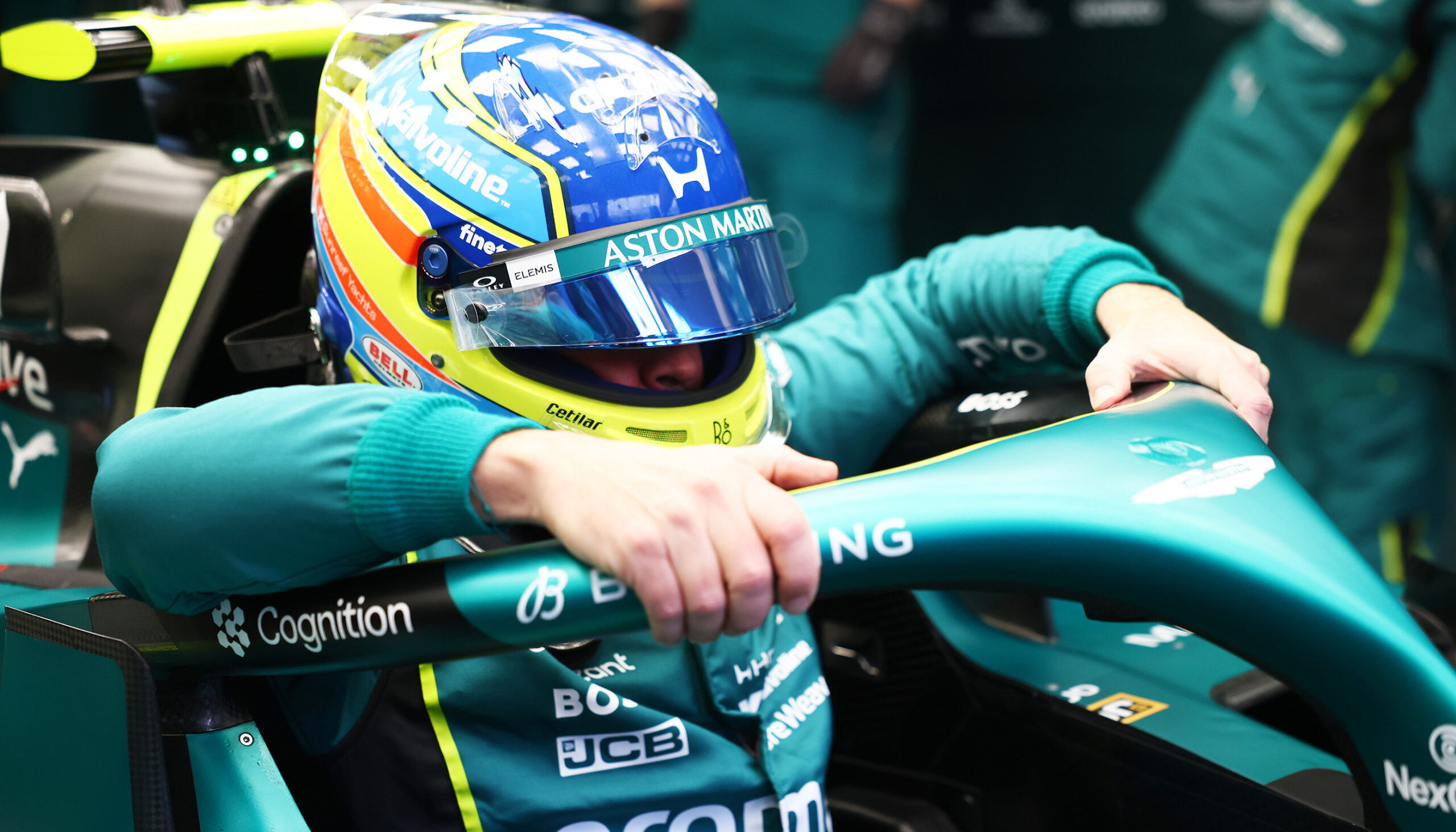The digital world has become an integral part of modern sport, connecting fans and stakeholders in ways previously unimaginable. However, alongside these benefits lies a growing concern: the escalating crisis of online abuse. Motorsport, like many other global sporting disciplines, is not immune. In a recent virtual media event attended by Pit Debrief, Van Amersfoort Racing’s Brad Joyce and Trident Team Manager Giacomo Ricci were asked to share their perspectives on the issue, as it exists in F3 in 2025, and explain how their teams approach protecting drivers and personnel from the increasingly widespread problem of online abuse.
The question, posed in light of a joint statement from F1, F2, F3 and the FIA, which reaffirmed a collective condemnation of abuse and harassment in all forms, sought to understand how individual teams are tackling this challenge. Notably, the statement underscored a shared responsibility among fans and members of the motorsport community to uphold respect and humanity—especially as online abuse continues to affect not only athletes but also staff working behind the scenes.
Acknowledging the challenge
In response to the question from Pit Debrief, Brad Joyce offered a candid reflection on the scale and complexity of online abuse within the sporting world.
“I mean, that’s actually a very difficult subject throughout, not just in motorsport, but in sport in general, and for many public figures. So it’s not a question I can answer straight off the top.”
Joyce acknowledged that addressing online abuse is far from straightforward. The digital landscape, while offering visibility and fan engagement, also presents a difficult terrain for teams and athletes to navigate safely. Crucially, he noted the necessity of maintaining a proactive presence on social media, despite the risks it can pose.
“I mean, obviously, we try and support the drivers as best we can. You need to have a good focus on social media, because that’s the way life is at the moment, or is for the future. But yeah, the online abuse obviously runs very deep throughout a lot of different forms of media and sports. So yeah, it’s not an easy question to answer that one, I’m afraid.”
Joyce’s remarks underline the reality that motorsport organisations must strike a delicate balance between public engagement and safeguarding the well-being of their personnel.
A shared concern, limited tools
Similarly, Giacomo Ricci from Trident acknowledged the gravity of the issue, while admitting that there is only so much that can be done at a team level.
“Well, to be honest, I have nothing enough to add. I always try to keep an eye to support the driver, but then I have nothing more to add, to be honest. This one is a different question, a difficult question.”
Ricci’s comments reflect the broader challenge that many F2 and F3 teams face when combating online abuse in 2025: while there may be a desire to support drivers and staff, the necessary tools, training, and institutional frameworks may not always be readily available within smaller outfits. Consequently, the need for external guidance and coordinated responses becomes even more pressing.
UAOA: A coordinated response
In response to the rise of online abuse, the Fédération Internationale de l’Automobile (FIA) launched the United Against Online Abuse (UAOA) campaign in 2022. The initiative, founded by FIA President Mohammed Ben Sulayem, aims to tackle online harm through research, education, policy advocacy, and international collaboration. The campaign emerged shortly after an FIA steward faced significant harassment following the 2022 United States Grand Prix.
Guided by its core pillars—Stronger Together, Evidence Led, and Committed to Action—the UAOA has made meaningful strides in establishing a global framework to combat online abuse in sport. In 2025, the campaign was awarded €400,000 in funding from the European Union’s Erasmus+ Programme to lead a transformative project across the EU. This project will include empirical research in native languages, educational resources, AI-powered interventions, and the development of safeguarding frameworks.
Furthermore, the recently released UAOA Barometer 2025 paints a sobering picture of the crisis: 50% of abuse directed at athletes is misogynistic or racist, 75% of federations report continued threats against competitors and their families, and 90% believe abuse could force athletes to leave the sport entirely.
A collective responsibility
Despite the ongoing efforts of governing bodies and campaigns like UAOA, the reality remains that teams often operate without comprehensive internal mechanisms to address online abuse. Both Joyce and Ricci pointed to the complexities involved, emphasising that while emotional and social support is offered where possible, more must be done at a structural level to provide protection.
Indeed, as the FIA, F1, F2, and F3 reaffirm their commitment to standing against online harassment, the motorsport community must continue to foster a culture of respect—both on and off the track. With the support of cross-sector initiatives, policy innovation, and digital accountability, the sport has the potential to transform the online space into one that reflects the same integrity and inclusivity it strives for on race day.
A formidable challenge remains
The issue of online abuse in motorsport, including F3, remains a formidable challenge in 2025. While governing bodies are making significant strides in combating the problem at scale, individual teams like Van Amersfoort Racing and Trident acknowledge the difficulty of responding effectively at ground level. Nonetheless, continued dialogue, joint responsibility, and collaborative initiatives are essential. In a sport where passion runs high and visibility is global, protecting the dignity and well-being of athletes and support staff is no longer optional—it is imperative.





